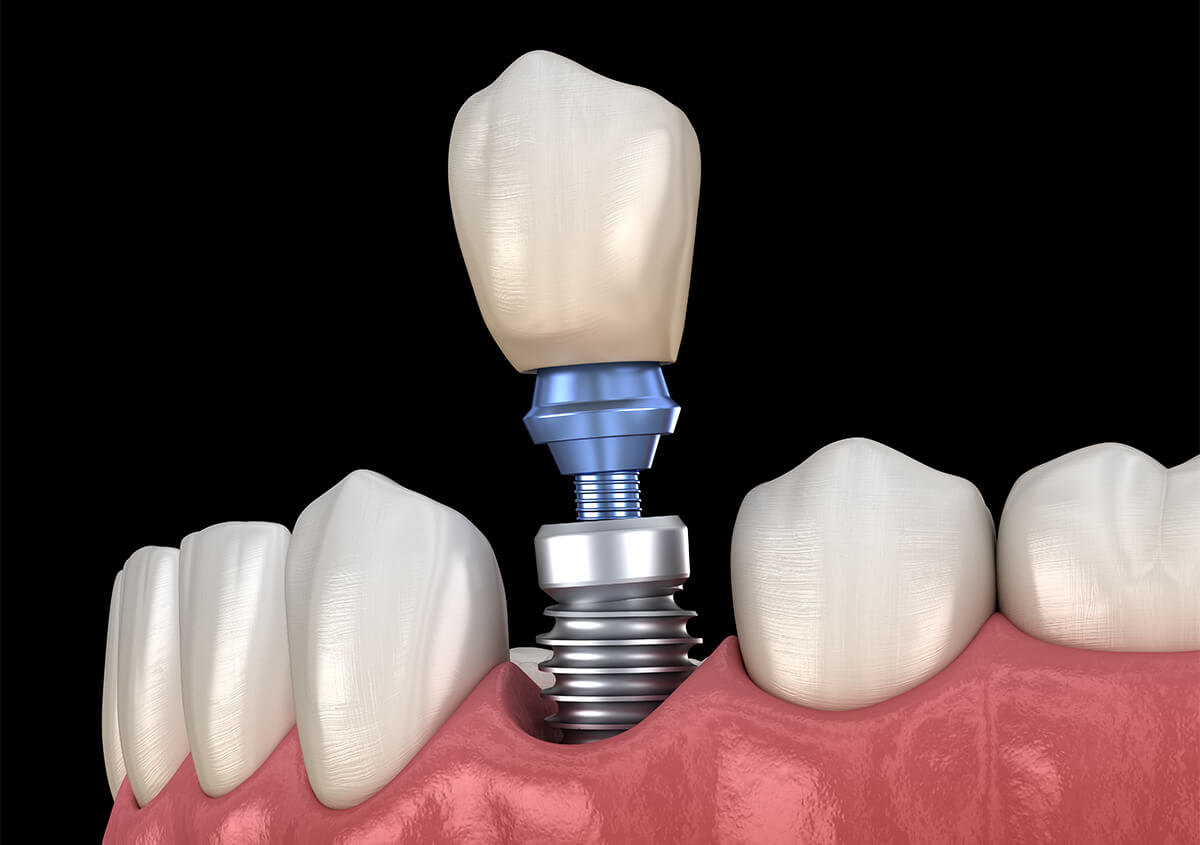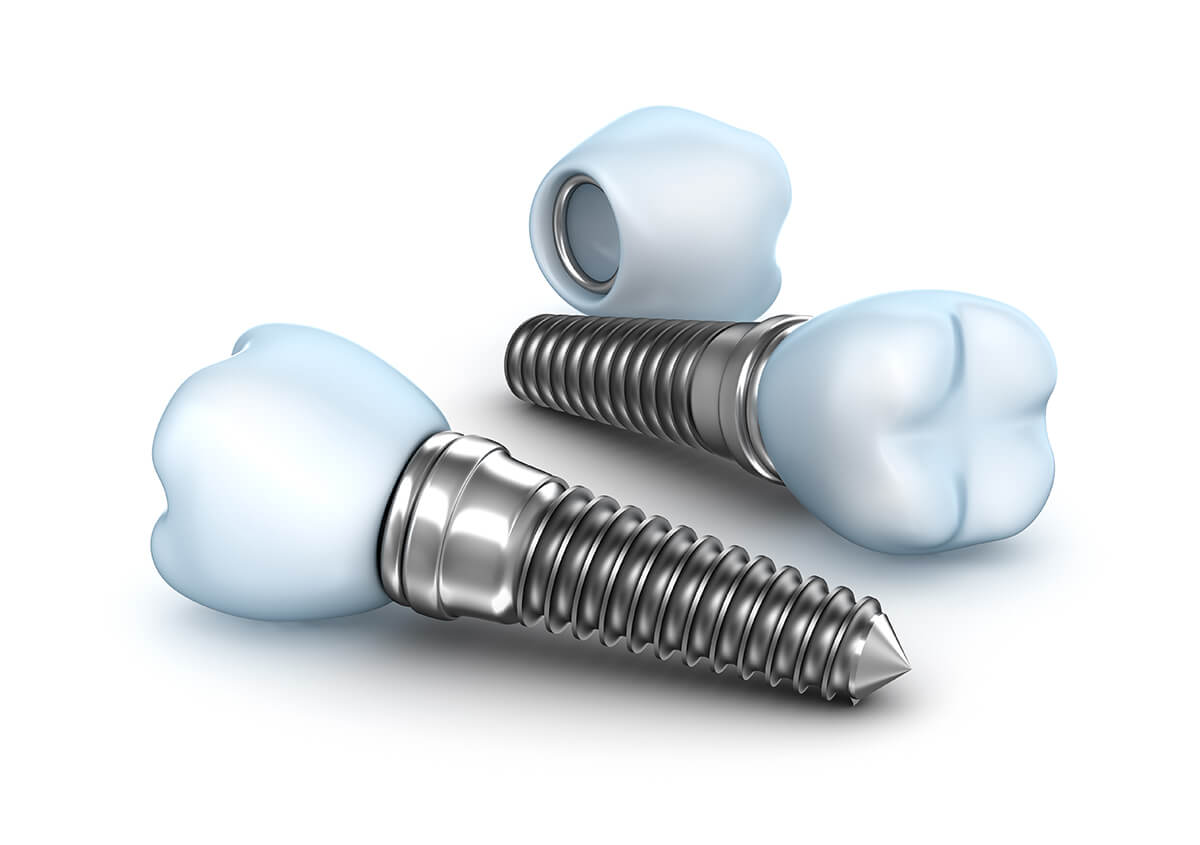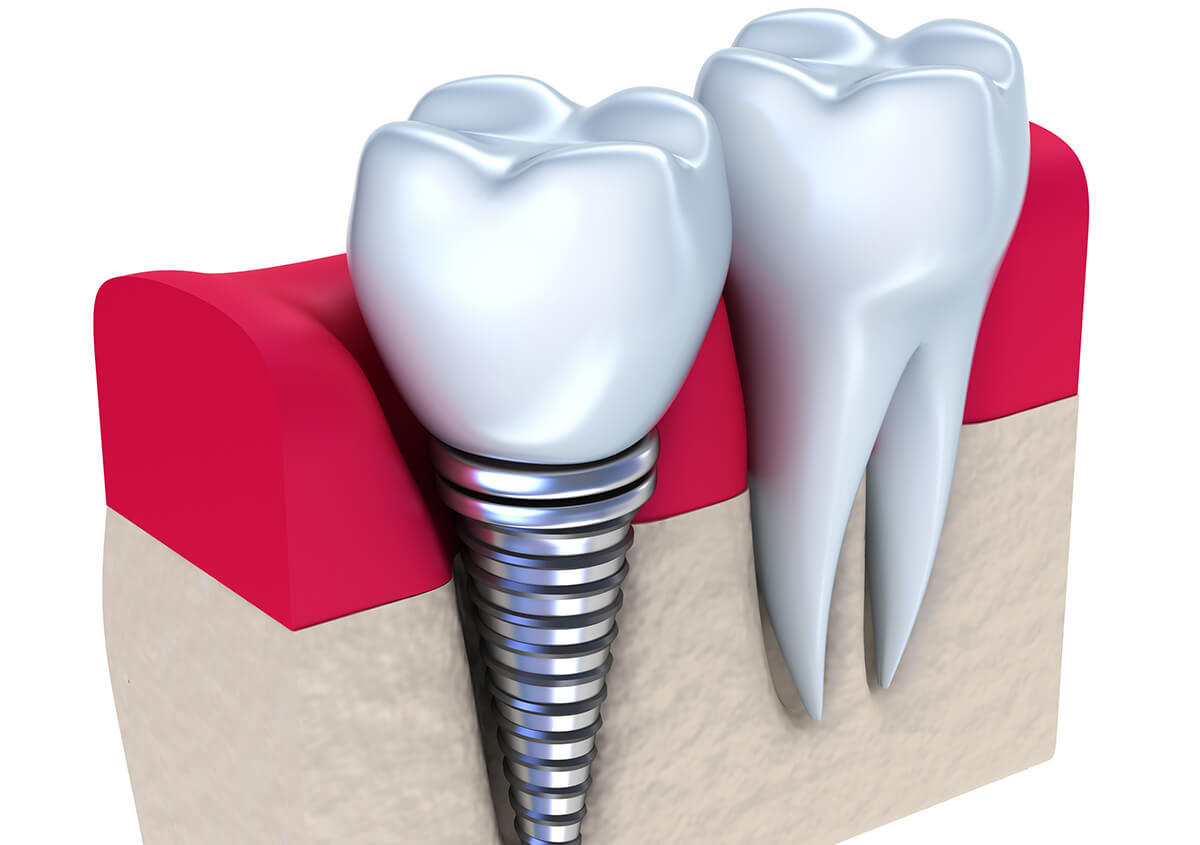Fill gaps in your smile with dental implants that are designed like natural teeth

Dental implants represent the gold standard method to replace teeth that can’t be “saved” with nonsurgical treatment (such as root canal therapy) or other endodontic procedures to resolve extensive damage to a tooth. However, not all dentists in and around Marysville, Washington, have the onsite capabilities to skillfully handle every step in the implants process. A member of the world’s leading implant dentistry organizations, Dr. Dan Hwang of Creo Dentistry has the training and sophisticated tools to plan and place the implant, as well as to restore the visible part of the tooth above the gumline: the crown.
Other dentists only have the expertise and technologies to restore the implant-supported tooth, the final step in the process. They cannot expertly “map” or pinpoint the precise locations in your jaw for each implant. Likewise, they do not have the focused knowledge and other investments to place implants in the jawbone. Additionally, Dr. Hwang has developed relationships with some of the Sound’s top specialists. They work together, using advanced tools like digital X-rays and 3-D mapping, to identify where to best place the implant. The proper placement is integral to the long-term success of the implant-retained tooth.
How Do Dental Implants Work?
Dental implants are comprised of three parts — the post, the abutment and the crown. The post, however, is the most important part. This is the part our dentist embeds in your jaw, and it is the foundation of your tooth implant. It’s critical the post be placed by an experienced dentist, otherwise your dental implant could fail.
Much can go wrong with a poorly placed implant. If your dental implant is in the wrong position, your teeth will not line up properly. If the implant is too deep, it will be hard to clean, and pockets can form along the gumline that can harbor bacteria and eventually lead to gum disease. A tooth implant that is too shallow will not be surrounded by enough bone and remain visible. A replacement tooth that is implanted too close to nerves or sinuses can leave patients in pain or numb.
A dental implant that is too close to adjacent teeth will not leave room for the abutment and crown. Measurements need to be taken properly and if space is an issue, the patient should get orthodontic treatment before a dental implant is attempted.
Fixing Dental Implants Gone Wrong
If you have had dental implants at another Marysville, Washington, dentist office and are unhappy with the results, a more skilled dentist can help. A poorly placed post usually means starting over with a new tooth implant, and possibly bone grafting.
Easier to correct than poorly placed posts are issues with crowns. Some patients complain their dentist chose a crown that does not match their other teeth, making their replacement tooth obvious to others. Some crowns are too big, making patients uncomfortable, and some are too small, leaving gaps between teeth.
Crowns that break are often made of a composite containing more plastic than ceramic. Replacing the crown with a high-quality prosthesis should take care of the problem. Another reason a crown may break is inadequate placement of the post, resulting in imbalanced forces in the mouth when chewing.
Experienced Marysville, WA, Dentist
As you can see, your chance of success with a tooth implant is the direct result of the expertise of the dentist who places it. Because dental implants are a significant investment, too many patients seek out Marysville dentists who will perform this procedure at a discount.
Your health – and your looks – are worth too much to take a chance with a discount dentist. Additionally, if you have to pay for the procedure a second time due to implant failure, the discount you got will not have saved you any money.
Rely on the expertise of our dentist, Dr. Hwang of Creo Dentistry. He has the necessary training and experience to perform even the most challenging dental implant procedures in Marysville, WA.
A note on All-On-4® treatment
In coordination with other specialists (as needed), Dr. Hwang strategically places implants in a way where a minimal number of these cylinders are needed to support a maximum number of new or replacement teeth. All-on-4® refers to a special tooth-replacement system; as few as four dental implants are necessary to support an entire arch (upper or lower jaw) of replacement teeth. This important feature minimizes the expense, demands on the body for healing, and the time spent in the treatment chair for those patients who are missing many or all of their teeth.
All implants, regardless of if they are supporting a single tooth (or crown) or a mouthful of teeth as a denture, are designed to function like tooth roots. They are made from a biocompatible or tissue-friendly material that joins with the surrounding bone. Once it is integrated during a natural and safe process, the implant is effectively a part of your jaw.
A crown, bridge or partial, or complete denture is then attached to the implant. This design is unique to conventional forms of tooth replacement, which only replace the gums and/or teeth. They don’t replace the portion of the tooth that is underneath the gumline, and that stabilizes the teeth in the jaw. So, dental implant-supported teeth are uniquely designed like natural teeth! This design presents many benefits to our patients, including:
- Optimal stability and comfortable
- Feel and look like natural teeth
- Support efficient chewing and other functions
- Long-lasting
- Prevent damage caused by bone loss
- Avoid shifting and damage to other teeth
- Maintains youthful facial structure and appearance
- Easy to care for (brush and floss like natural teeth)
- Durable – so, a great value
- Straightforward, low-risk, and efficient process

Dental implants are titanium roots, that are replaced within the jawbone to resemble a tooth or group of teeth. A screw is inserted through the gums and into the jawbone. A porcelain crown is then attached to the screw to become the new tooth or teeth. They can be used to support dental prosthesis including crowns, dentures, and bridges. Today’s treatments are so natural-looking, no one will know you had surgery. There’s approximately a 95% success rate for all implants. With modern advances in dentistry, some implants can be restored immediately with lifelike all porcelain crowns. For more details ask your dentist.
Get back your confident smile! Contact us today to schedule your appointment. Take the first big step towards better health and well-being.



